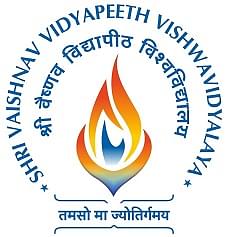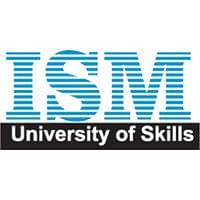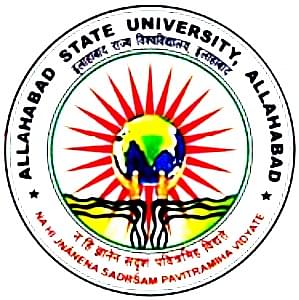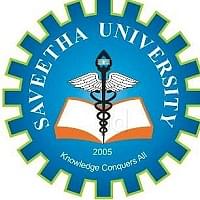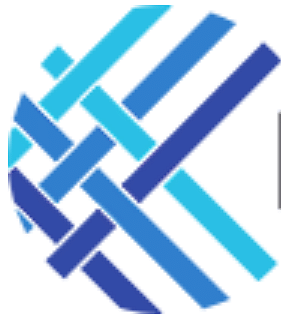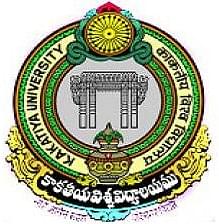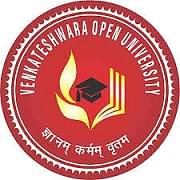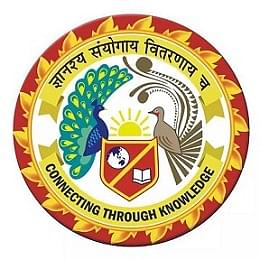Introduction about Phd in Information
Technology
BestPh.D. in Information Technology is a rigorous and
advanced academic program designed to explore the interdisciplinary field of
technology, computing, and information systems at the highest level. This
doctoral-level program offers students the opportunity to conduct original
research, contribute to cutting-edge advancements in technology, and become
leaders in academia, research, and industry.
Information Technology (IT) encompasses a
broad range of disciplines, including computer science, data science,
cybersecurity, networking, software engineering, artificial intelligence, and
human-computer interaction. As technology continues to evolve rapidly, Ph.D.
candidates in Information Technology engage in innovative research that
addresses complex challenges, pushes the boundaries of knowledge, and drives
technological innovation.
How I can apply for admission to Phd
in Information Technology?
Applying for Ph.D. program in Information Technology admission 2024-25, involves
several steps, and it's important to carefully follow the application
guidelines provided by the institution offering the program. Here's a general
overview of the application process:
Research Programs: Begin by researching universities or academic institutions that
offer Ph.D. programs in Information Technology. Look for programs with faculty
members whose research interests align with yours and where you can pursue your
academic and career goals effectively.
Review Admission Requirements: Thoroughly review the admission requirements for each program
you're interested in. These requirements may vary from one institution to
another but commonly include the following:
Educational Background: Most Ph.D. programs require applicants to have a master's degree
in a relevant field such as computer science, information technology, computer
engineering, or a closely related discipline. Some programs may consider
applicants with a bachelor's degree in exceptional cases.
Academic Transcripts: Prepare official transcripts from all previous academic
institutions attended. These transcripts should demonstrate strong academic
performance, particularly in relevant coursework.
Standardized Tests: Some programs may require standardized test scores such as the GRE
(Graduate Record Examination) or subject-specific tests. However, the
importance placed on test scores varies among programs, and some institutions
may waive this requirement.
Letters of Recommendation: Arrange for letters of recommendation from professors, employers,
or professionals who can speak to your academic abilities, research potential,
and qualifications for doctoral study. Typically, three letters of
recommendation are required.
Statement of Purpose: Write a compelling statement of purpose (SOP) outlining your
academic background, research interests, career goals, and reasons for pursuing
a Ph.D. in Information Technology at the institution. The SOP allows you to
articulate your motivations for doctoral study and demonstrate your alignment
with the program's objectives.
Research Experience: Highlight any previous research experience, publications, or
projects relevant to Information Technology. This can strengthen your
application and demonstrate your readiness for doctoral-level research.
Contact Potential Advisors: Reach out to faculty members or potential research advisors whose
work aligns with your interests. Express your interest in their research and
inquire about potential Ph.D. opportunities, research projects, and funding
opportunities available in their labs.
Prepare a Research Proposal: Develop a research proposal outlining your proposed research
topic, objectives, methodology, and expected contributions to the field of
Information Technology. This proposal demonstrates your readiness for
doctoral-level research and helps faculty assess your fit for the program.
Submit Application Materials: Complete the application form for each institution you're applying
to and submit it along with all required materials by the specified deadline.
Many universities offer online application portals, making the process more
convenient.
Pay Application Fees: Some institutions may require an application fee to process your
application. Make sure to pay any applicable fees according to the instructions
provided by each institution.
Follow Up: After submitting your application, keep track of its status and
follow up with the admissions office if necessary. They may require additional
information or documentation to complete your application.
Interview (if required): Some programs may require an interview as part of the admissions
process. If you're selected for an interview, prepare accordingly and make sure
to showcase your research interests and qualifications effectively.
Wait for Admission Decision: Once you've submitted your application, you'll need to wait for
the admissions committee to review it and make a decision. This process can
take several weeks to months, so be patient and use this time to explore other
opportunities or prepare for the next steps in your academic journey.
Acceptance and Enrollment: If you receive an offer of admission, congratulations! Follow the
instructions provided by the institution to accept the offer and complete the
enrollment process. This may involve submitting additional paperwork, paying a
deposit, and registering for classes.
By following these steps and staying
organized throughout the application process, you can increase your chances of
successfully gaining admission to a Ph.D. program in Information Technology. If
you have any questions about eligibility or the application process, don't
hesitate to reach out to the admissions office or program coordinator at the
institution for clarification.
What is the eligibility for Phd in
Information Technology?
The eligibility criteria for a Ph.D. program in Information Technology (IT) college may vary depending on the institution offering the program and
the specific requirements of the department or faculty. However, here are some
common eligibility requirements that you might encounter:
Educational Qualifications:
Most Ph.D. programs require applicants to
have a master's degree in a relevant field such as computer science,
information technology, computer engineering, electrical engineering, or a
closely related discipline. Some programs may consider applicants with a
bachelor's degree in exceptional cases.
Academic Background:
A strong academic background with a high
GPA (Grade Point Average) in previous undergraduate and graduate coursework is
typically required. Most programs look for applicants with a minimum GPA of 3.0
on a 4.0 scale, though specific GPA requirements may vary.
Standardized Test Scores:
Some institutions may require applicants to
submit standardized test scores such as the GRE (Graduate Record Examination)
or subject-specific tests. However, the importance placed on test scores varies
among programs, and some institutions may waive this requirement.
Letters of Recommendation:
Applicants are usually required to submit
letters of recommendation from professors, employers, or professionals who can
assess their academic abilities, research potential, and suitability for
doctoral study. Typically, three letters of recommendation are required.
Statement of Purpose (SOP):
A well-written statement of purpose (SOP)
outlining your academic background, research interests, career goals, and reasons
for pursuing a Ph.D. in Information Technology is an essential part of the
application. The SOP allows you to articulate your motivations for doctoral
study and demonstrate your alignment with the program's objectives.
Research Experience:
Previous research experience, particularly
in areas related to information technology, computer science, or related
fields, can strengthen your application. Applicants with a demonstrated ability
to conduct independent research, publish papers, or participate in research
projects may have an advantage.
English Language Proficiency:
For international applicants whose native
language is not English, proof of English language proficiency may be required.
This can typically be demonstrated through standardized tests such as the TOEFL
(Test of English as a Foreign Language) or IELTS (International English
Language Testing System).
It's important to carefully review the
specific eligibility requirements for each Ph.D. program in Information
Technology that you're interested in and ensure that you meet all criteria
before applying. If you have any questions about eligibility or the application
process, don't hesitate to reach out to the admissions office or program
coordinator at the institution for clarification.
How long does it take to complete Phd
in Information Technology?
The duration of a Ph.D. program in Information Technology (IT) university can vary
depending on several factors, including the specific requirements of the
program, the institution offering the degree, the student's research progress,
and whether the program is pursued on a full-time or part-time basis. However,
on average, completing a Ph.D. in Information Technology typically takes around
4 to 6 years of full-time study.
Here's a breakdown of the typical timeline
for completing a Ph.D. in Information Technology:
Coursework (1-2 years):
In the initial phase of the Ph.D. program,
students typically undertake coursework to develop a strong theoretical
foundation in information technology, computer science, research methodologies,
and related fields. The duration of the coursework phase may vary depending on
the program's requirements and the student's prior academic background.
Comprehensive Exams (Varies):
Some Ph.D. programs require students to
pass comprehensive examinations or qualifying exams to demonstrate their
mastery of the coursework and readiness to advance to the research phase. The
timing and format of these exams vary by program, but they typically occur
after the completion of coursework.
Research and Dissertation (2-4
years):
The primary focus of a Ph.D. program in
Information Technology is the completion of an original research project and
the writing of a doctoral dissertation. During this phase, students work
closely with a faculty advisor or research supervisor to formulate a research
topic, conduct independent research, collect and analyze data, and make
original contributions to the field of information technology. The duration of
the research phase can vary depending on the complexity of the research
project, the student's progress, and external factors such as funding
availability and publication requirements.
Dissertation Defense and
Graduation:
Once the research project is completed,
students must defend their dissertation before a committee of faculty members
and experts in the field. The dissertation defense typically involves a
presentation of the research findings followed by a question-and-answer
session. Upon successful defense of the dissertation, students are awarded the
Ph.D. degree in Information Technology.
It's important to note that the timeline
provided above is a general estimate, and actual completion times may vary
based on individual circumstances and program requirements. Factors such as the
availability of research funding, publication opportunities, and the complexity
of the research project can all influence the time it takes to complete a Ph.D.
in Information Technology. Additionally, some students may choose to pursue the
degree on a part-time basis while balancing other commitments, which can extend
the overall duration of the program.
What is the syllabus for Phd in
Information Technology?
The syllabus for a Ph.D. program in Information Technology (IT) college in india can
vary significantly depending on the specific focus of the program, the research
interests of the student, and the requirements of the institution offering the
degree. However, here is a general overview of topics that may be covered in
the syllabus of a Ph.D. program in Information Technology:
Advanced Topics in Computer
Science:
In-depth study of advanced topics in
computer science relevant to Information Technology, including algorithms, data
structures, computer architecture, operating systems, and programming
languages.
Research Methodologies in IT:
Exploration of research methodologies
commonly used in IT research, including quantitative and qualitative methods,
experimental design, case studies, surveys, and data analysis techniques.
Information Systems Theory and
Practice:
Examination of theoretical foundations and
practical applications of information systems in organizations, including
systems analysis, design, implementation, and evaluation.
Cybersecurity and Privacy:
Advanced study of cybersecurity principles,
techniques, and technologies for protecting information systems, networks, and
data from cyber threats. Topics may include cryptography, network security,
intrusion detection, and risk management.
Data Science and Analytics:
Techniques for collecting, processing,
analyzing, and interpreting large-scale data sets in IT contexts. Topics may
include machine learning, data mining, predictive analytics, big data
technologies, and visualization techniques.
Networking and Communication:
Design, optimization, and management of
computer networks, communication protocols, wireless networks, and Internet of
Things (IoT) devices. Topics may include network architecture, routing
algorithms, network security, and performance analysis.
Software Engineering and
Development:
Best practices for software engineering,
including requirements engineering, software design, testing, debugging, and
maintenance. Topics may include software architecture, software quality
assurance, agile methodologies, and DevOps practices.
Artificial Intelligence and
Machine Learning:
Advanced study of artificial intelligence
(AI) techniques and machine learning algorithms for solving complex problems in
IT. Topics may include neural networks, deep learning, natural language
processing, and reinforcement learning.
Human-Computer Interaction
(HCI):
Research on the design, evaluation, and
usability of interactive computing systems. Topics may include user interface
design, user experience (UX) research, human factors, accessibility, and
interaction design patterns.
Emerging Technologies:
Exploration of emerging technologies and
trends in Information Technology, such as cloud computing, edge computing,
Internet of Things (IoT), blockchain, augmented reality (AR), virtual reality
(VR), and quantum computing.
Special Topics in Information
Technology:
Elective courses or seminars on specialized
topics relevant to the student's research interests and career goals. These may
include topics such as cybersecurity policy, healthcare IT, e-commerce, digital
transformation, or social computing.
Research Seminars and
Dissertation Work:
Participation in research seminars,
colloquia, and workshops to present and discuss ongoing research projects,
share insights with peers, and receive feedback from faculty members.
Independent research work on a doctoral
dissertation under the guidance of a faculty advisor, involving literature
review, research methodology, data collection and analysis, experimentation,
and writing of research papers.
It's important to note that the specific
syllabus and course offerings may vary from one institution to another, and
students may have the flexibility to tailor their coursework and research focus
to align with their academic interests and career goals. Additionally, Ph.D.
programs often emphasize original research and scholarly contributions, so
students are expected to engage in independent research and produce
high-quality research publications as part of their doctoral studies.
Conclusion
In conclusion, pursuing a Ph.D. in
Information Technology (IT) represents a transformative journey into the
forefront of technological innovation and scholarly inquiry. This advanced
academic program offers students the opportunity to delve deeply into the
intricacies of IT, conduct groundbreaking research, and make significant
contributions to the field.
Throughout the Ph.D. journey, students
engage in rigorous coursework, independent research projects, and scholarly
inquiry under the guidance of experienced faculty mentors. They explore
advanced topics in computer science, information systems, cybersecurity, data
science, networking, artificial intelligence, and more, gaining a comprehensive
understanding of the theoretical foundations and practical applications of IT.





